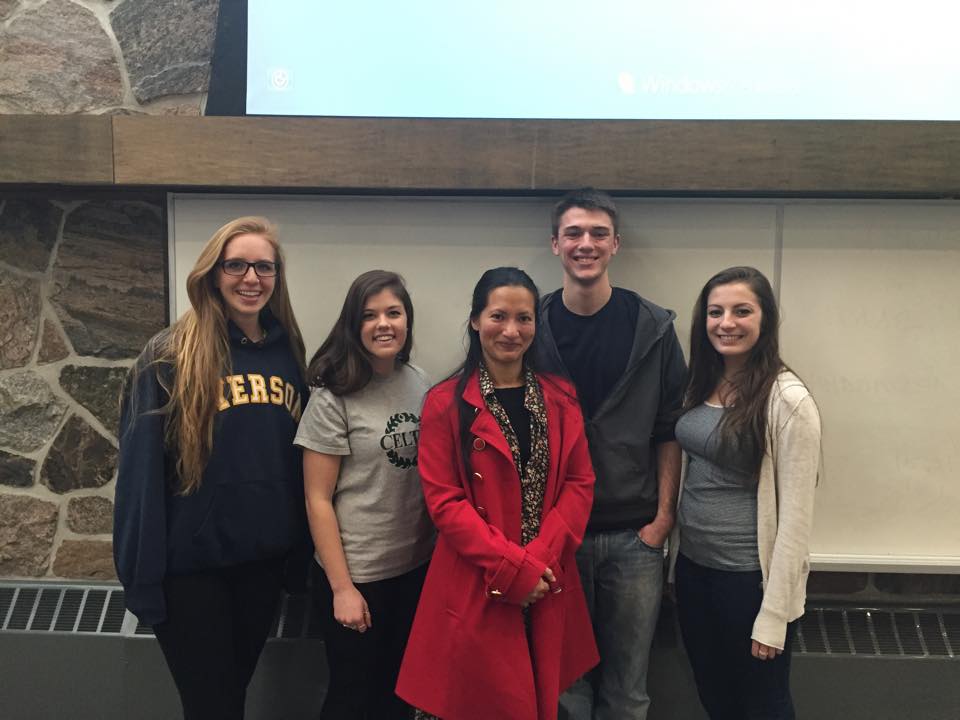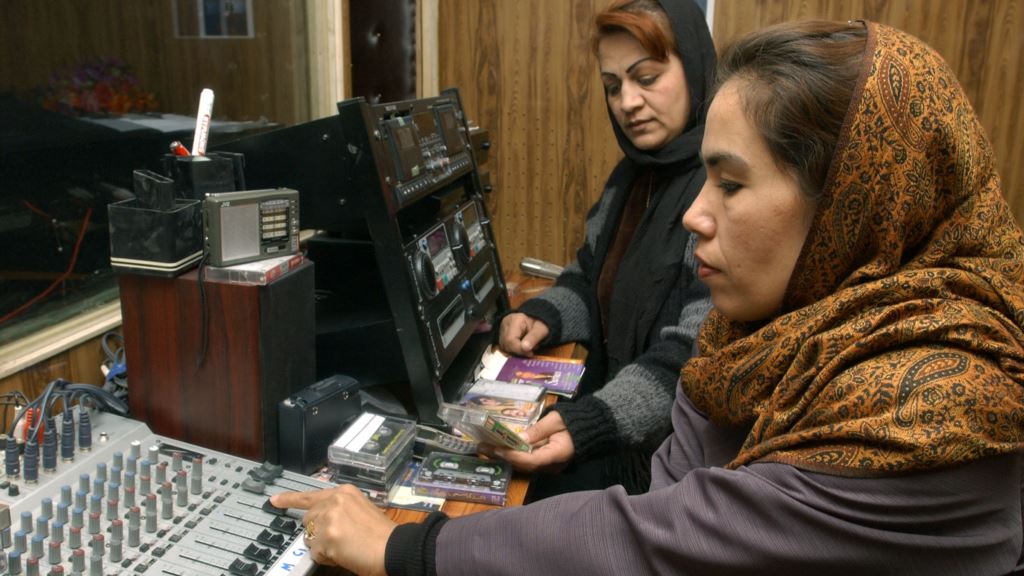
Afghanistan, after decades of war, Taliban rule, and foreign invasion, has seen its communication infrastructure decimated. It is an odd thing, in a country that has been invaded twice in the past 40 years, to view a singing competition program called “Afghan Idol”. The lecture for International Development on February 25 for the topic of “Technology, Innovation and Development” explored the efforts of the international community to reconstruct media in post-Taliban Afghanistan. Dr. Sarah Kamal spoke to the class on her contribution to the National Action Plan for the Women of Afghanistan, as well as her efforts to establish an educational radio station for women in Afghanistan.
Dr. Kamal earned her Bachelors of Mathematics from the University of Waterloo. Her professional career began with her work as a development practitioner in Canada, Nicaragua, Iran, India, and Uganda. Her interest in media studies led her to Afghanistan, where she began working with the interim government to improve radio communications and establish radio and television based media for post-invasion Afghanistan.
Following the removal of the Taliban government in Afghanistan, the United States of America became very involved in the shaping of the media landscape. Despite the good intentions, the reconstruction could be seen as unsuccessful and not well thought out. Efforts were made to form this new landscape to match that of America’s free market liberal media, in which broadcasts are privately owned and funded, with viewership determining funding. This led to many of the more popular television and radio programs displaying taboo-breaking content in order to generate controversy and increase viewership. Many of the traditional and conservative voices of Afghanistan feel this change is harmful to traditional Afghan culture. Dr. Kamal saw this as an example of a common problem within development practise, in which foreign intervention promotes a solution that does not take into account the views of the people.

We have learned throughout our time in International Development that the incorporation of public knowledge and that evaluating decisions based on the wants and needs of those living in the area are crucial towards developing a proper development strategy. Dr. Kamal’s research in Afghanistan led her to the conclusion that what was best for the people of Afghanistan would be the proliferation of short-wave FM radios in order to improve communications between villages. The development of Afghanistan’s commercial media was viewed as being secondary, with more importance placed on allowing the more remote villages to communicate with larger urban centres in order to improve their quality of life. The final results of the U.S. backed media development was a commercialized media sector with a massive amount of both television and radio programs, broadcasting content ranging from pundit-based news to entertainment television. This substantial increase in content was a major shift for a country which, prior to the invasion, had only one radio station which was run by the Taliban and existed mostly for propaganda purposes.
Sarah’s advice to the group for pursuing a career in development is that, no matter what post-secondary degree you get, it is important to focus on an issue that you are passionate about. By becoming an expert in media studies, her input was extremely valuable to the new Afghanistan government.
For further information on Sarah Kamal and the work she has done you can visit her website.
Works citied
Photo from: Afghan Radio Station Dedicated To Women Shut Down. (2013, July 31). Retrieved March 2, 2015, from http://www.rferl.org/content/afghanistan-women-radio-closed/25062450.html
Publications. (n.d.). Retrieved from http://www.sarahkamal.com/index.html
Sarah Kamal. (2012, April 19). Retrieved from http://www.trudeaufoundation.ca/en/community/sarah-kamal